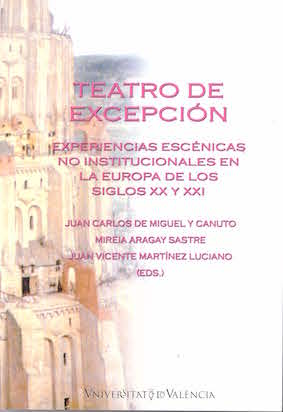Projekt Theater/Fleischerei_mobil, experiences of alternative and experimental theatre in today's Vienna
DOI:
https://doi.org/10.7203/qf-elit.v19i0.5205 Abstract
Abstract
This paper wishes to explore the work of the Projekt Theater / Fleischerei_mobil (1998-2013), one of Austria’s main center for experimental theater and performance work with international orientation and participation. Founded in Vienna by Eva Brenner (1953), this experimental theater collective considers itself as a meeting point between artistic work, research and interaction with the city’s inhabitants as well as new social movements. The team at the Fleischerei (the Butcherie) aims at collective developments of new performance vocabularies on the basis of contemporary literary texts and themes of cultural and political import, by focussing on socio-theatrical experimentation with special target groups such as immigrants, political asylum seekers and refugees.
Keywords: Austrian contemporary theatre; alternative and experimental theatre; protest theater; performance work; socio-theatrical experimentation.
 Downloads
Downloads
Downloads
Published
How to Cite
-
Abstract509
-
PDF (Español)126
Issue
Section
License
 Este obra está bajo una licencia de Creative Commons Reconocimiento-NoComercial-SinObraDerivada 4.0 Internacional.
Este obra está bajo una licencia de Creative Commons Reconocimiento-NoComercial-SinObraDerivada 4.0 Internacional.
Authors who publish with this journal agree to the following terms:
- Authors retain copyright and grant the journal right of first publication with the work simultaneously licensed under a Creative Commons Attribution License that allows others to share the work with an acknowledgement of the work's authorship and initial publication in this journal.
- Authors are able to enter into separate, additional contractual arrangements for the non-exclusive distribution of the journal's published version of the work (e.g., post it to an institutional repository or publish it in a book), with an acknowledgement of its initial publication in this journal.
- Authors are permitted and encouraged to post their work online (e.g., in institutional repositories or on their website) prior to and during the submission process, as it can lead to productive exchanges, as well as earlier and greater citation of published work (See The Effect of Open Access).




